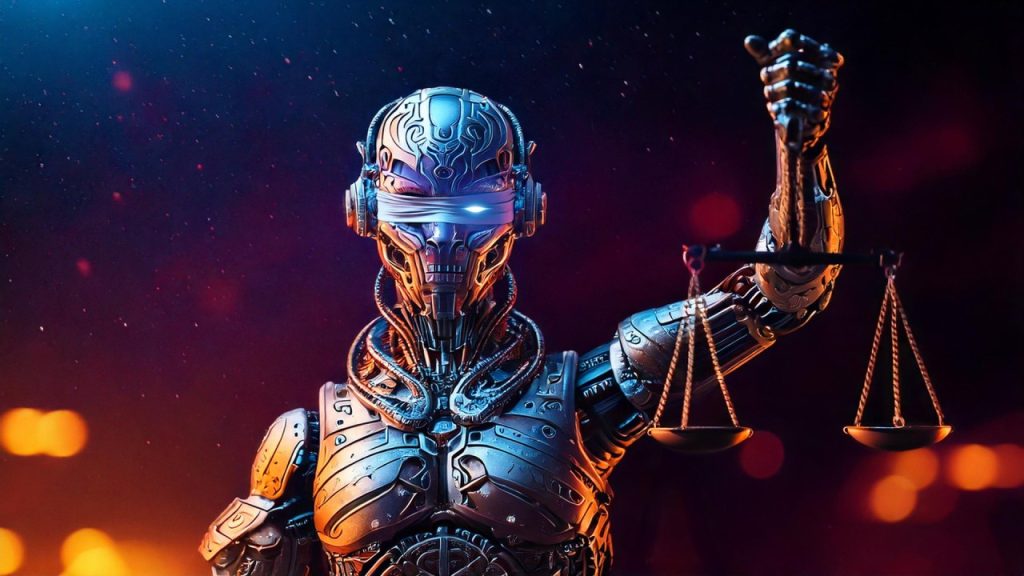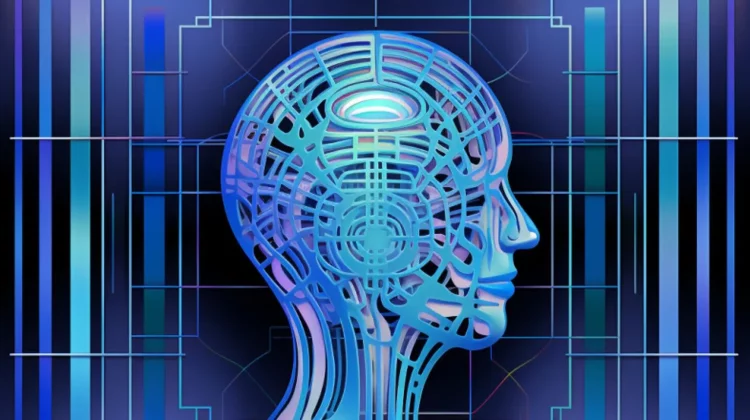Artificial Intelligence (AI) has become an integral part of modern society, revolutionizing industries ranging from healthcare to finance, and even transforming how we interact with technology. As AI technologies continue to evolve and expand, it is crucial to address the ethical challenges that arise in their development and deployment. These challenges include issues of fairness, transparency, accountability, bias, privacy, and the impact of automation on employment. The ethical considerations surrounding AI not only influence how these technologies are built but also determine how they are applied to everyday life. This article explores the various ethical issues in AI development and deployment, offering insights into the responsibilities of developers, governments, and organizations in ensuring that AI serves humanity in an ethical and equitable manner.
1. Bias and Fairness: Addressing Inequality in AI Systems
One of the most significant ethical challenges in AI development is the issue of bias. AI algorithms learn from large datasets, which often reflect existing biases in society. If the data used to train AI systems is biased—whether due to historical inequalities, demographic imbalances, or incomplete data—AI systems can perpetuate or even exacerbate these biases, leading to unfair outcomes.
a) Sources of Bias in AI
Bias in AI systems can arise from several sources. One common issue is data bias, where the data used to train AI models reflects historical prejudices or inequalities. For instance, a facial recognition system trained predominantly on images of light-skinned individuals may perform poorly on people with darker skin tones. Similarly, an AI recruitment tool might favor male candidates if the training data predominantly features resumes from male applicants.
Another source of bias is algorithmic bias, which occurs when the algorithms themselves introduce prejudices based on their design or assumptions. For example, machine learning algorithms that rely heavily on specific features, such as race or gender, can reinforce societal stereotypes.
b) Mitigating Bias and Ensuring Fairness
To address bias, AI developers must implement strategies to ensure fairness and inclusivity. This includes diversifying training datasets to represent a broad range of demographic groups and using algorithms that are designed to be more equitable. Techniques such as fairness constraints and regular audits of AI models can help identify and rectify biases.
Additionally, organizations must prioritize transparency by disclosing how their AI models were trained and ensuring that they are subject to external oversight. This enables accountability and allows stakeholders to understand the ethical considerations that went into developing the technology.
2. Privacy and Data Protection: Safeguarding Personal Information
As AI technologies become more pervasive, concerns about privacy and data protection have grown. AI systems often rely on vast amounts of personal data to function effectively, raising concerns about how this data is collected, stored, and used. Ensuring that AI technologies respect individuals’ privacy is an essential ethical consideration in their development and deployment.
a) Data Collection and Consent
AI systems require access to data to make decisions and learn. However, data collection must be conducted transparently and with the consent of individuals. The issue of informed consent is particularly significant when it comes to sensitive data, such as health information or financial records. Users must be made aware of how their data will be used and must have the option to opt-out or withdraw consent without facing negative consequences.
Moreover, AI systems should be designed to collect only the data necessary for the task at hand, limiting unnecessary data collection and minimizing potential privacy risks.
b) Data Security and Anonymization
To protect individuals’ privacy, AI systems must implement robust security measures to safeguard personal data. This includes encryption, secure data storage, and ensuring that data is anonymized where possible. Anonymization techniques, such as removing personally identifiable information (PII), can help reduce the risks of privacy breaches while allowing data to be used for research or analysis.
However, AI developers must also be cautious about de-anonymization techniques, where the anonymity of data is compromised when combined with other datasets. Ensuring that data is securely anonymized and cannot be traced back to individuals is vital to protect privacy.

3. Transparency and Accountability: Ensuring Trust in AI Systems
AI technologies, particularly machine learning models, are often perceived as “black boxes” due to their complexity and lack of interpretability. This lack of transparency can be problematic, especially when AI systems make critical decisions in high-stakes areas such as healthcare, finance, or criminal justice.
a) Explainability and Interpretability
One of the most pressing ethical concerns in AI is the need for explainability. AI models, particularly deep learning algorithms, can be difficult for humans to understand, making it challenging to assess how decisions are being made. For instance, in healthcare, an AI system may recommend a particular treatment plan, but without understanding the reasoning behind the recommendation, it becomes difficult to trust the system.
AI developers must prioritize building systems that are explainable and interpretable. This means ensuring that the decisions made by AI systems can be traced back to specific factors or rules, allowing users to understand the rationale behind each outcome. Providing clear explanations for AI decisions is essential for building trust and enabling users to make informed choices based on AI-generated insights.
b) Accountability and Responsibility
With the increasing integration of AI in decision-making processes, it is essential to establish clear lines of accountability. In cases where AI systems make incorrect or harmful decisions, it is necessary to determine who is responsible—whether it is the developers who created the algorithm, the companies that deployed it, or other stakeholders.
Establishing accountability frameworks can ensure that AI systems are held to high ethical standards. This includes implementing oversight mechanisms, regular audits, and legal protections for those who may be affected by AI decisions, such as patients in healthcare settings or individuals involved in criminal justice cases.
4. Job Displacement and Economic Impact: Navigating the Future of Work
As AI technologies become more capable of performing tasks traditionally carried out by humans, there is growing concern about the potential for job displacement. AI-driven automation has the power to transform industries, leading to more efficient operations but also rendering some jobs obsolete.
a) Economic Disruption and Job Losses
AI technologies, such as robotics and natural language processing, are already transforming industries such as manufacturing, customer service, and logistics. While automation can improve productivity, it also raises questions about how displaced workers will be supported.
To address this issue, governments and organizations must focus on reskilling and upskilling initiatives to prepare the workforce for the changing landscape. This could include offering training programs in AI and related fields to help workers transition into new roles. Additionally, there is a growing conversation about the need for universal basic income (UBI) as a potential solution to support individuals who lose their jobs to AI-driven automation.
b) Ethical Approaches to Job Displacement
The ethical approach to job displacement involves balancing the benefits of AI-driven efficiency with the need to protect workers’ livelihoods. Organizations must prioritize responsible deployment of AI technologies, ensuring that workers are not left behind in the transition. Furthermore, policymakers must implement laws and regulations that protect workers’ rights and create safety nets for those affected by automation.
5. Autonomous AI Systems: Navigating the Path of Responsibility
Autonomous AI systems, such as self-driving cars and autonomous drones, present significant ethical challenges. These systems are capable of making decisions without human intervention, raising questions about accountability, safety, and ethical decision-making.
a) Ethical Dilemmas in Autonomous Systems
One of the key ethical dilemmas in autonomous AI systems is the question of decision-making in life-and-death situations. For example, if a self-driving car is faced with an unavoidable accident, should it prioritize the safety of its passengers or minimize harm to pedestrians? These types of moral and ethical decisions are complex, and developers must address how AI systems should be programmed to handle such scenarios.
b) Responsibility and Liability
As autonomous systems take on more responsibilities, determining liability in the event of an accident or harm becomes increasingly difficult. In the case of self-driving cars, for example, who is responsible if the vehicle causes an accident— the manufacturer, the software developer, or the vehicle owner? Legal frameworks must be established to ensure that accountability is clearly defined and that individuals and organizations are held responsible for the actions of AI systems.
6. The Future of Ethical AI: Striving for Global Standards
As AI technologies continue to evolve, establishing global ethical standards for AI development and deployment becomes essential. Various international organizations, including the United Nations and the European Union, are working on guidelines and regulations to ensure that AI is developed responsibly and ethically. However, these efforts must be accompanied by the involvement of a diverse range of stakeholders, including technologists, policymakers, ethicists, and the public, to ensure that AI serves the best interests of humanity.
Conclusion: Balancing Innovation with Ethical Responsibility
AI has the potential to transform society in profound ways, but its development and deployment must be approached with caution and ethical responsibility. By addressing issues of bias, privacy, transparency, accountability, and job displacement, AI can be harnessed in ways that benefit all individuals, regardless of their background or circumstances. Ensuring that AI serves humanity in an ethical and equitable manner will require collaboration across industries, governments, and societies to create frameworks that protect individual rights and promote the responsible use of technology.











































